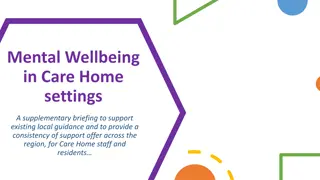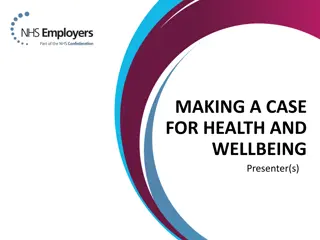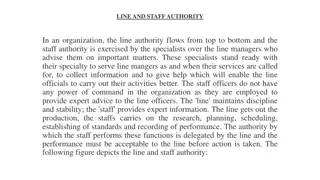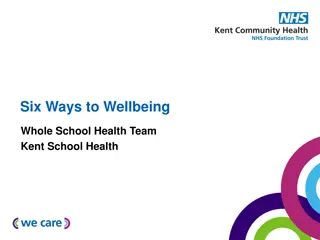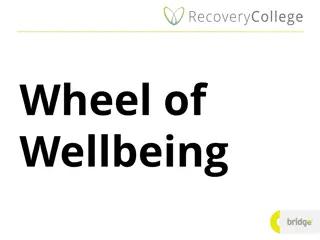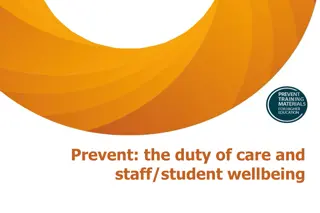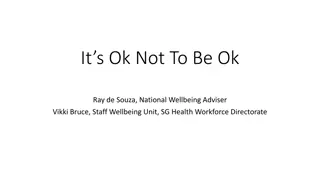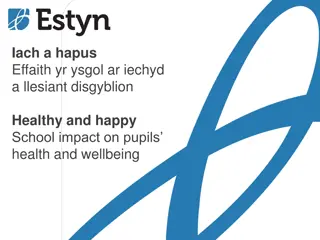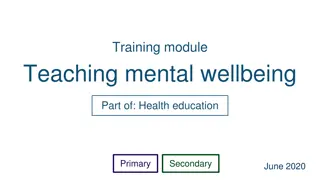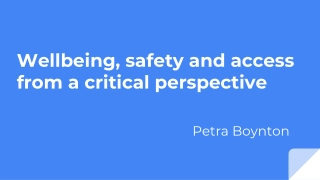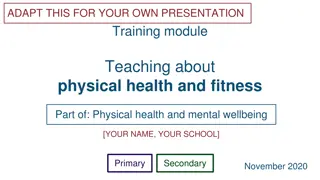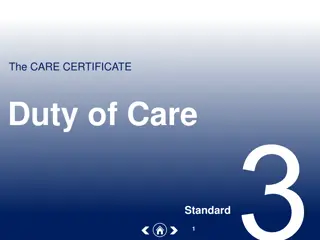Supporting Staff Wellbeing in Education Settings
This presentation emphasizes the importance of supervision and support for staff wellbeing in schools. It explores the need for effective supervision models, understanding the term "supervision," and the impact of mental health issues on education professionals. Highlighted are rising exclusion rates, staff experiencing poor mental health, stress levels, and the necessity for holistic support within schools. The presentation underscores the need for embedding supervision practices to enhance staff wellbeing and support child welfare effectively.
Download Presentation

Please find below an Image/Link to download the presentation.
The content on the website is provided AS IS for your information and personal use only. It may not be sold, licensed, or shared on other websites without obtaining consent from the author. Download presentation by click this link. If you encounter any issues during the download, it is possible that the publisher has removed the file from their server.
E N D
Presentation Transcript
Supervision: A form of support within schools and education settings Dr Olivia Blick olivia.blick@suffolk.gov.uk Psychology and Therapeutic Services: Supervision Support | Suffolk County Council
Aims of this presentation To develop an understanding of the term supervision To have knowledge of the different functions and models of supervision To reflect on how you feel supervision would benefit your practice. To consider how you feel supervision could be imbedded in your setting
Staff wellbeing in schools Continued rise in exclusion rates and numbers of young people living with chronic adversity . Many children suffering complex trauma and have increasingly complex needs. Schools often in the position where they are required to support pupil mental health There are many factors that support and protect child wellbeing, these are cemented by positive relationships. This is intensely relational work and therefore it is a very emotionally charged profession. Education staff now take on roles that are far beyond that of simply an educator . Staff wellbeing is the corner stone of whole school support (Sue Roffey, 2019) Staff wellbeing is pivotal to being able to provide this holistic support. Schools are the only front-line service that doesn t get supervision
Mental Health and Wellbeing in schools Over the past five years: 77% of staff have experienced symptoms of poor mental health related to their work 72% report feelings of stress (rises to 84% for senior leaders) 42% think their organisations culture has a negative impact on their wellbeing 54% have considered leaving the sector in the past two years due to pressures on their mental health Levels of stress and anxiety remain unsustainably high Excessive workload and lack of work-life balance remain key drivers for poor mental health Covid-19 has had a significant impact on wellbeing A consistently high percentage of staff consider leaving the profession Staff are concerned they will be perceived negatively if seeking support for mental health issues Organisations have improved staff awareness of wellbeing policies, as well as their implementation More than half of staff (57%) would not be confident in disclosing unmanageable stress or mental health problems to their employer Teacher Wellbeing Index: mental health & wellbeing research (educationsupport.org.uk)
Alongside EBSA for pupils I m also wondering whether this will be evident in some staff? I think the fear that some staff are experiencing has been underestimated For some it is causing mini panic-attacks several times a day... Some staff relationships are suffering as a result of: blame / resentment / anger . Quotes from school staff within the current climate Lack of opportunities to spend time with colleagues to share / off-load / support / socialise Children presenting with mental health needs not knowing how best to support them It feels as though many / most schools are fire fighting at the moment, and just about coping I consider myself to be a fairly resilient character with a good support network and I m noticing that it s taking me twice as long to decompress at the end of a working day . What s it like for more vulnerable HTs? I m aware of SLT and HTs not wanting to call help-lines even when they need to, because they don t want to be seen as not coping
How can we support mental health and wellbeing in schools? Recommendations from the Teacher Wellbeing Index: Educator mental health must be at the heart of education recovery and all education policy But why supervision?.... Prioritise a culture of wellbeing and reduce stigma Supervision provides: a safe and contained space opportunities for reflection about the nature and challenges of experiences consideration of the emotional impact that very often exists for Look after your leadership Support your staff
What is supervision? Interactive Empowering Nourishing Supervision is a place to feel safe, respected and heard Creative Collaborative Enabling A place of trust where a healthy relationship gives me a safe place to acknowledge and work with my concerns, stresses, fears and joys as a worker
What is the aim of supervision? Reflective practice Emotional support Problem solving A regular, protected time for facilitated, in-depth reflection on practice More open Sharing practice Celebrate successes More available Enabled clarity of thought and encouraged focus on own wellbeing, which in turn enables me to support young people more effectively
How supervision has provided support to staff in settings Feedback from a range of staff who have been receiving regular supervision from our service Greater emotional resilience and less burnout Ideas for support, confidence in the way I undertake the role and re-energised. Enabled clarity of thought Safe space, emotional support, reflecting as a team, impartial guidance Solution focused support and problem solving with a determination to go the extra mile for our children/young people Safety, containment and understanding. It gives me a professional space to reflect
How does this differ from other forms of supervision with line managers? Not task orientated Not associated with performance or delivery Supervision is about supporting those involved to become more effective for the child or young person More emotional capacity Enhanced confidence and a sense of empowerment A place to feel safe, respected and heard Was supervision as you would have expected?.. Better than expected, for team insight and managing personal wellbeing. I didn't know I needed it until we started having it! It provides a reflective space Individual or with a group of peers
How could supervision work in your setting? What we can offer: Training and development of school systems to support supervision Training for staff in schools to develop as supervisors Individual or groups sessions facilitated by an experienced Supervisor within the P&TS Bespoke packages tailored to you, your setting and the needs of staff Trauma Informed supervision








